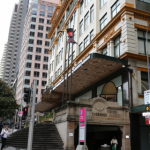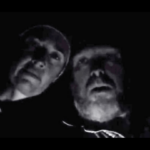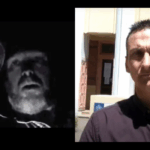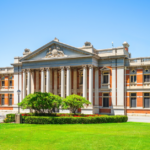Police Should Target Sovereign Citizens and Other Right-Wing Extremists, Not Muslim Youths

Recent decades have seen a heavy law enforcement focus on the Muslim community over fears of terrorism offences, with raids by heavily-armed law enforcement officers on hundreds of homes across the nation without corresponding criminal charges, the monitoring, targeting and arrest of Muslim youths for what can only be described as ‘thought crimes’ – again without corresponding charges – and the brazen demonisation of the Muslim community, with Islamophobia becoming normalised in the media and Australian society generally.
But report after report has found that a far greater threat is posed by far-right extremists, such as self-proclaimed ‘nationalist’ groups which disseminate hateful, divisive and fallacious propaganda which has contributed to Islamophobic crimes increasing by 580% in recent years.
Right wing extremism comes in many forms.
One of those forms is the sovereign citizen movement, which was born in the United States before making its way over to our own nation.
Sovereign citizens
“Sovereign citizens” typically individuals who reject the legitimacy of government authority, laws, and institutions.
They commonly claim that they are not subject to the laws of the Commonwealth, states, or territories, taking it upon themselves to “opt out” of having to pay taxes, fines, or comply with laws, rules and regulations by declaring themselves “sovereign,” often picking and misinterpreting irrelevant or inapplicable parts of pseudo-legal documents, archaic interpretations of law, and a fabricated version of what is meant to be the Constitution.
Yet, they feel they are entitled to enjoy all of the benefits provided by society, such as roads and other infrastructure.
Here’s a breakdown of some of their claims:
Beliefs and claims
- Legal fictions: Sovereign citizens typically argue that governments only have authority over a “corporate” version of a person (a legal entity, often represented in ALL CAPS on documents), not the “flesh-and-blood human.”
- Pseudo-law: They use pseudo-legal arguments (like “freeman on the land” ideas) to claim immunity from laws, police, and courts.
- Tax and fines refusal: Many refuse to pay taxes, speeding fines, or registration fees, claiming these are unlawful.
- Mistrust of government: They often believe that governments are corporations or illegitimate entities, sometimes tied to conspiracy theories about global elites.
- Common law courts: Some attempt to set up their own “common law courts” or issue fake legal documents such as “cease and desist orders” or “liens” against officials.
Behaviour
- Courtroom disruption: They may appear in court and argue they are not subject to the court’s jurisdiction, often quoting irrelevant sections of the Constitution or maritime law.
- Police encounters: They sometimes refuse to provide names, licences, or comply with directions, claiming they are not bound by road laws.
- Paper terrorism: Filing large numbers of meaningless or vexatious legal documents to overwhelm courts and agencies.
Legal status
Australian courts consistently reject sovereign citizen arguments as nonsense with no legal foundation. Pseudo-legal theories have no standing under Australian law, and attempting to rely on them usually results in fines, court orders, or imprisonment.
The Australian Federal Police (AFP) and security agencies also monitor the movement because in some cases it has led to violent incidents, including confrontations with police.
Social impact
- Frustration in the legal system: Courts and public servants waste resources dealing with pseudo-legal filings.
- Potential for violence: While many sovereign citizens are non-violent, a minority have become hostile, especially when confronted by police or tax authorities.
- Spread through online communities: Social media has played a large role in spreading sovereign citizen ideas in Australia, particularly during the COVID-19 pandemic, when anti-lockdown and anti-mandate groups overlapped with sov-cit rhetoric.
Wieambilla
Location & Event: In December 2022, at a remote property near the locality of Wieambilla in Queensland’s Western Downs, two police officers and a neighbour were killed in an ambush. The attackers were members of the Train family—Gareth, Nathaniel, and Stacey Train—who held extreme anti-government beliefs tied to the sovereign citizen ideology.
- Ideological Motivation: The Trains were radicalized through online conspiracy forums, blending extremist Christian (premillennialist) beliefs with sovereign-citizen-style ideology. They believed in a final apocalyptic confrontation with the state and viewed law enforcement as part of a tyrannical system.
- Law Enforcement Reaction: In response, Queensland police instituted new procedures: all interactions with individuals suspected of extremist or sovereign citizen beliefs must be logged and passed to counter-terrorism units, recognizing the potential threat these ideologies pose.
- AFP Assessment: The Australian Federal Police (AFP) also had flagged such believers as demonstrating “violence, fixation and harassment,” cautioning that while not all are violent, the ideology carries the potential to radicalize individuals toward violence.
Broader context
- Growing Concern: The sovereign citizen movement—rooted in pseudo-legal beliefs that individuals aren’t bound by government laws—has been monitored as a domestic extremist threat in Australia, especially as it surged during the COVID-19 pandemic.
- Similar Incidents: Experts see a troubling pattern when comparing Wieambilla with the later Porepunkah shootings in August 2025, where another alleged sovereign citizen, Dezi Freeman, killed two police officers during an ambush attempt.
- Expert Analysis: Sociologists note that these ideologies are often fueled by social isolation, economic stress, and online misinformation, with rural and regional settings offering fertile ground for radicalization. They stress the need for stronger trust-building and preventive policing strategies
Porepunkah
On 26 August 2025, in Porepunkah, a rural town in northeast Victoria (about 300 km from Melbourne), ten police officers were executing a search warrant at a property connected with historical child sexual offences. The warrant was aimed at Dezi Freeman, a 56-year-old local man who self-identified as a sovereign citizen.
As officers searched an abandoned bus on the property, Freeman ambushed them with gunfire. Two officers—Detective Leading Senior Constable Neal Thompson (59) and Senior Constable Vadim De Waart (35)—were killed. A third officer was seriously wounded
Freeman escaped, allegedly armed with his own weapons and possibly those taken from the fallen officers.
Who Is Dezi Freeman?
Freeman—also known as Desmond Filby—was well-known in the region. He lived on the property in a bus with his family and was deeply involved in the sovereign citizen and anti-government movement.
He frequently used extreme rhetoric, referring to police as “Gestapo,” “terrorist thugs,” “corrupt filth,” and “Nazis”, both in court and online. He also attempted to “arrest” court officials in pseudo-legal showdowns and even sought to bring a private treason prosecution against then–Premier Daniel Andrews over COVID-19 lockdowns.
Manhunt
The manhunt rapidly escalated: more than 450 officers, including Victoria Police Special Operations and specialist units, as well as federal agencies like the AFP and ASIO, were deployed. Helicopters, drones, thermal imaging, roadblocks, and flash-bang devices were used across alpine bushland terrain.
The Mount Buffalo National Park and surrounding area were placed under no-fly zones, and local facilities—including schools and council buildings—were locked down as the search continued.
Authorities strongly urged anyone assisting Freeman—or withholding information—to come forward or face serious charges.
Significance
- The attack starkly demonstrates how sovereign citizen ideology, often dismissed as fringe or eccentric, can escalate into deadly violence.
- Legal experts explain that sovereign citizens fundamentally reject government institutions and authority, viewing them as illegitimate—a worldview that can lead to confrontation with law enforcement.
- This incident, along with the 2022 Wieambilla attack, has elevated awareness of domestic ideological threats. It underscores the need for public and rural community resilience to misinformation, and better coordination between security, legal, and mental health systems
Fatal incidents in Australia
Here are other notable fatal incidents and serious violent events in Australia linked to the sovereign citizen movement—beyond the well-known Wieambilla (2022) and Porepunkah (2025) tragedies:
1. Lithgow Siege & Newcastle Standoff (Non-fatal for others, fatal for perpetrators)
In July 2022, a 29-year-old man with suspected sovereign citizen leanings fired on heavily armed police during a siege in Lithgow, NSW—and ultimately took his own life.
Two months later in Newcastle, a woman identifying as a “sovereign being” barricaded herself armed with an axe. She died after police used a Taser and bean-bag rounds.
Key point: While no officers were killed in these incidents, they illustrate how the ideology can drive individuals toward lethal showdowns with law enforcement.
2. Daniel Whelan & Krista Kach Cases
Daniel Whelan (Lithgow) and Krista Kach (Newcastle) exemplify radicalisation rooted in SovCit belief systems. Whelan died by suicide amid an armed siege. Kach died in a police confrontation.
These cases highlight the mental instability of some SovCits and the potential for fatal outcomes.
3. Arson at Old Parliament House & Threats Against MP (Non-fatal but extremist in nature)
In 2017, a sovereign citizen–inspired protest involved an arson attack at Old Parliament House, as well as threats against MPs. Though not fatal, these acts signaled growing extremism in the movement.
Calls for shift in focus
Police in Australia have strong reasons to focus on sovereign citizens and other right-wing extremists, because these groups present unique, growing, and potentially violent threats to public safety, democratic institutions, and frontline officers themselves. Here’s a breakdown:
1. Direct Threat to Police and Authorities
- Targeting law enforcement: Both the Wieambilla shootings (2022) and Porepunkah ambush (2025) show that sovereign citizens and aligned extremists deliberately target police. They view officers as “illegitimate agents of tyranny,” making them priority targets in violent confrontations.
- Day-to-day hostility: Even in routine traffic stops or court hearings, sov-cits often refuse compliance, creating volatile situations that can escalate to violence.
- Pseudo-legal harassment: They engage in “paper terrorism,” overwhelming police and courts with fake legal claims, draining resources and threatening officials personally.
2. Growing Radicalisation Pipeline
- Ideological overlap: Sovereign citizens, anti-lockdown activists, anti-vaccine groups, and right-wing extremists often share conspiracy-driven ecosystems. Radicalisation in one space can spill into another.
- Accelerationism: Right-wing extremist groups (including sovereign citizens) increasingly embrace the idea that violence is necessary to spark social or political collapse.
- Online recruitment: Social media has turbocharged spread of these beliefs in rural and suburban communities, particularly during crises (COVID-19, economic stress, natural disasters).
3. Rural and Regional Vulnerability
- Wieambilla and Porepunkah both occurred in rural settings—where social isolation, distrust of government, and ready access to firearms can combine to create dangerous environments.
- Police working in regional areas face higher risks of encountering individuals with entrenched anti-government ideologies.
4. Connection to Broader Right-Wing Extremism
- Shared narratives: Sovereign citizens overlap with neo-Nazis, militia groups, and anti-immigrant extremists in their anti-government stance.
- Transnational links: Many SovCit beliefs were imported from the U.S. and adapted to Australia. Right-wing extremist networks are similarly international, raising the risk of imported tactics and propaganda.
5. Undermining the Rule of Law
- Erosion of democratic legitimacy: Sovereign citizens spread mistrust in government, courts, and police—undermining faith in institutions.
- Fake “common law courts”: Some extremists try to set up alternative “justice” systems, drawing vulnerable people away from real legal remedies and encouraging defiance of lawful authority.
6. Escalating Pattern of Violence
- Authorities once dismissed sov-cits as “nuisance litigants.” But since 2022, fatal police ambushes and armed standoffs have demonstrated the real-world danger.
- Right-wing extremism remains the fastest-growing domestic terrorism threat identified by Australian security agencies.
- The Australian Federal Police and ASIO now treat sovereign citizens as a terrorism-adjacent risk category.
7. Protective & Preventive Policing
- Officer safety: Knowing the warning signs of sovereign citizen encounters (refusal to provide name, pseudo-legal jargon, threats of “citizen’s arrest”) helps police prevent escalation.
- Community safety: Monitoring these groups allows early intervention before violent plots are enacted.
- Counter-radicalisation: Engagement strategies can divert individuals at risk of sliding deeper into conspiratorial extremism.
While the views of sovereign citizens may seem bizarre yet benign, the potential for those inside social media echo chambers to spiral into acts of violence – as they have in recent times – suggests that better monitoring and taking precautions when these people are approach may enhance the safety of law enforcement agents, and indeed members of the community.






